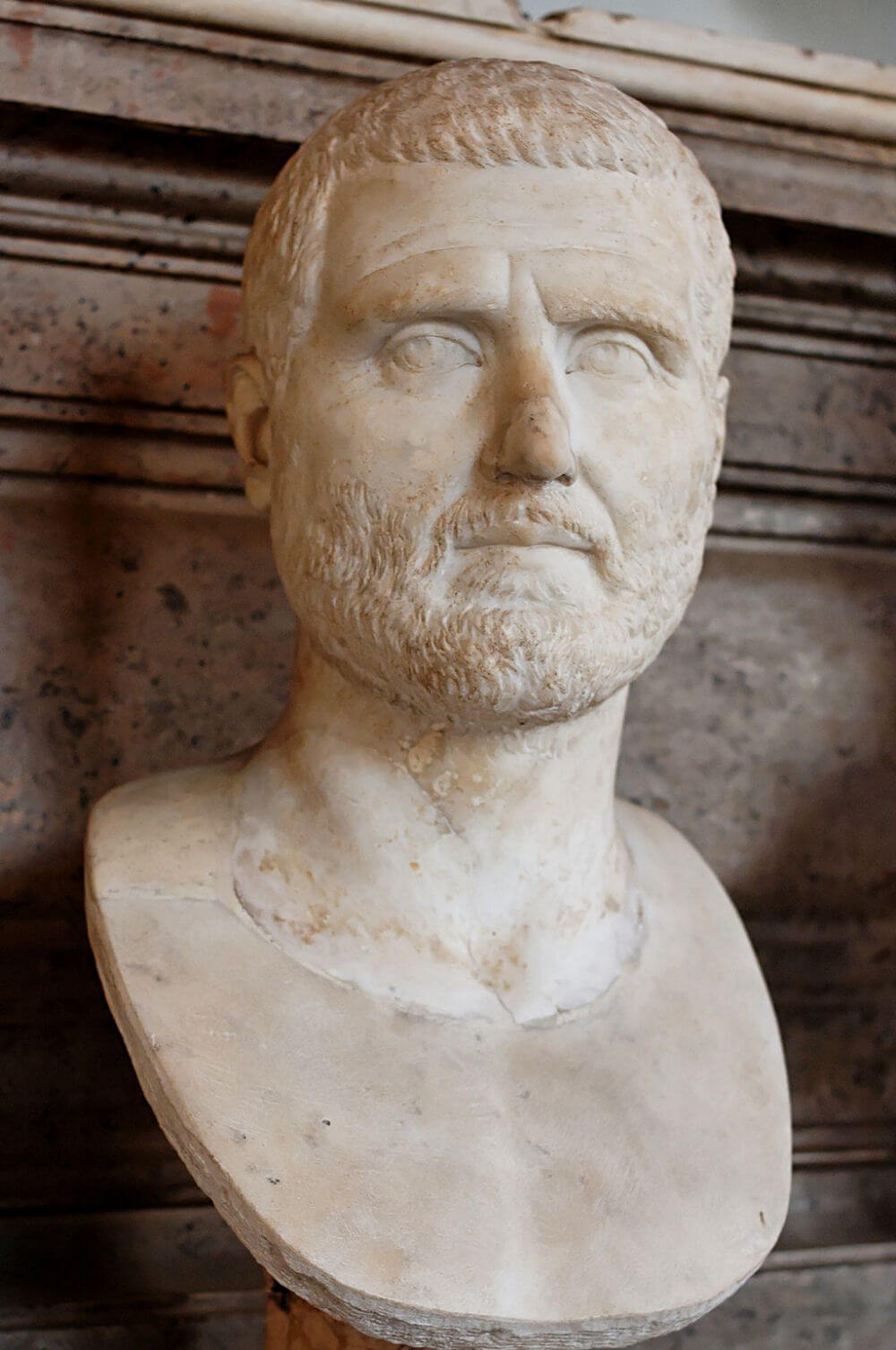Gordian I (c. 159 - 238 AD)
Emperor: 238 AD
Introduction
Gordian I, whose full name was Marcus Antonius Gordianus Sempronianus Romanus, was a Roman emperor who ruled for a brief period of 22 days along with his son Gordian II in the year 238 AD, known as the Year of the Six Emperors.

Born around 158 AD, by the time Gordian I became emperor he was already 80 years old. Known for his amiable character and affinity for literature, Gordian I received a dedication from the Greek writer Flavius Philostratus in his work "Lives of the Sophists"
His reign was marked by an unsuccessful rebellion against the reigning emperor Maximinus Thrax. Unfortunately for him, Gordian I's forces faced a crushing defeat at the hands of those loyal to Maximinus.
Despite the brevity and challenges faced during his rule, Gordian I's life and reign offer a glimpse into the instability and political turmoil that characterized this period in Roman history.
Early Life and Career
The identity of Gordian I’s mother and father are not known for certain, with a couple of candidates for each, although it is highly likely that they both had aristocratic links.
Gordian I received an education befitting his status, which included learning from renowned Greek philosopher and rhetorician, Herodes Atticus. His interests in literature played a significant role in shaping his character and intellectual pursuits.
Gordian's political career began by holding various senatorial positions. At the age of 64, he ascended to the office of consul. He later served as governor of several provinces, including Britannia in 216 AD.
In 238 AD, unrest began to stir in the Roman province of Africa, particularly in the cities of Carthage and Thysdrus (modern-day El Djem, Tunisia). Many wealthy young landowners were unhappy with the reign of Emperor Maximinus Thrax and his harsh taxation policies.
During this time, Gordian I was serving as proconsul in Africa. The discontented landowners turned to him for leadership in their revolt against the emperor. Despite his extremely advanced age for the time, Gordian I decided to join the rebellion, and assumed the role of a figurehead for the uprising.
Appointment as Emperor
As the rebellion gained momentum, the Senate in Rome decided to support Gordian I and his cause. They declared both Gordian I and his son, Gordian II, as joint emperors, bestowing upon them the title of ‘Augustus’. This move aimed to legitimize their rule and strengthen the revolt against Maximinus Thrax.
Unfortunately for Gordian I and Gordian II, their reign would be short-lived. The governor of the neighboring province of Numidia, an ally of Maximinus, led his forces to quell the uprising in Africa. The ensuing battle saw the defeat of the Gordians' forces and the death of Gordian II.
Following his son's demise, Gordian I chose to take his own life, ending their brief rule as emperors after only 22 days.
Despite the support Gordian I and Gordian II received from the Senate and citizens, their rule faced strong opposition from the Roman military. The militia, which had been loyal to the previous emperor Severus Alexander, was steadfast in backing Maximinus Thrax.
Co-Emperorship and Relations
Pupienus and Balbinus
After their deaths, the Senate chose two other senators, Pupienus and Balbinus, to become co-emperors, in a continued attempt to resist Maximinus Thrax.
Not surprisingly, Pupienus and Balbinus also faced considerable challenges during their co-emperorship, including a tense and uneasy relationship between themselves and Gordian supporters.
While struggling to maintain political stability in Rome, they also had to confront Maximinus Thrax's forces, which were ultimately defeated by their general, Timesitheus. Although the Senate had initially opposed Gordian I, his memory would continue to impact the reign of Pupienus and Balbinus.



